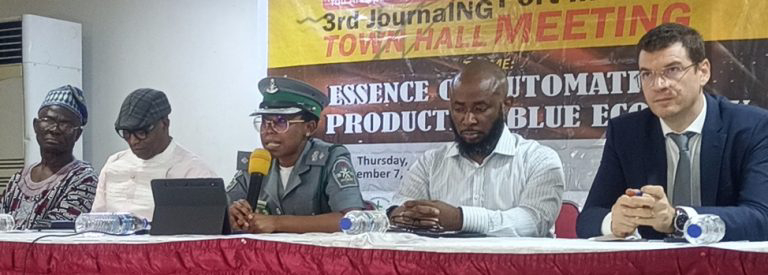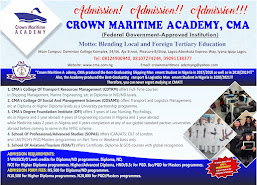Automation has increased Port Exports to 35% in Three Years - Bello-Koko
Kathy Kyari
According to information provided by the Nigerian Ports Authority (NPA), Apapa Ports' exports presently make up 35% of the total volume of cargo moved annually.
In a paper presentation during the 3rd JournalNG Port Industry Town Hall meeting in Lagos on Thursday, Mr. Mohammed Bello-Koko, the managing director of NPA, made this statement.
The NPA boss, who was represented by Apapa Port's Port Manager, Mr. Charles Okaga, said during a speech at the event with the theme "Essence of Automation to Productive Blue Economy" that the deployment of automation had allowed the Authority to improve its operations, which had led to an increase in exports of between 30 and 35 percent over the previous three years.
“For our total throughput for Apapa port, we have about 35 percent export. Since 2021 export moved steadily from 30 percent and it also increased further in 2022. This is attributable to the establishment of the NPA Export Processing Terminals to eliminate factors that act as a clog in the wheel of logistics and ease of doing export business."
“We must also note that we have enjoyed port stakeholders buy-in and support from several government agencies. It is also worthy to note that the presidency through the Presidential Enabling Business Environment Council (PEBEC) has played a key role in driving this agenda with NPA,” he said.
The head of the NPA also pointed out that Export Processing Terminals now have technologically improved connectivity to ports and other infrastructure, such as Truck Transit Parks (TTPs), which makes it easier to reach ports and reduces delays that in the past caused Agro-Exports to expire.
He described this as a significant improvement from the previous waiting period of 1-6 days by stating that the vessel waiting time at the berths has been cut down to a few hours.
Also speaking, Comptroller Timi Bomodi, Area Controller, Kirikiri Lighter Command, Nigeria Customs Service (NCS), emphasized that without sufficient data to guide investments, Nigeria's hopes of luring Foreign Direct Investments (FDIs) into the blue economy sector would not be achieved.
However, according to Bomodi, automation may be used to gather such crucial data that would eventually help to attract FDIs and steer local investments and government policies.
But in order to give port customers a high level of assurance about port procedures, the head of Customs urged all port stakeholders to create and publish their Standard Operating Procedures (SOPs) and make sure they follow these SOPs.
According to him, the lack of SOPs at ports creates uncertainty and makes conducting business more difficult.
Ismail Aniemu, Publisher of JournalNG and Summit Convener, emphasized in his welcome speech that the talkshop is intended to lay the stage for a genuine and practical marine agenda for the maritime industry.
“Today we have a Ministry of Marine and Blue Economy, but the concept of this year’s theme was prepared several months ago. At that time, we never knew that the government would create a Ministry of Marine and Blue Economy out of the existing Transport Ministry.”
“Nevertheless, we know that in blue economy there are numerous low hanging fruits for economic diversification in Nigeria. Stakeholders and experts in this industry have used this talkshop to project their views which are encapsulated as recommendations for the government to consider. We also maximize the advantage of the mass media to propagate the issues emanating from the summit,” Aniemu said.


















0 Comments